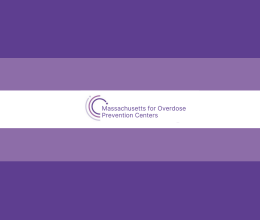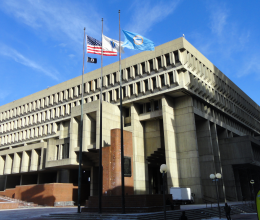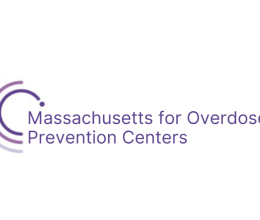
About one month before Massachusetts’ primary election, the “Know Your Sheriff” campaign—a statewide voter education initiative launched by the ACLU of Massachusetts—today published questionnaire responses from sheriff candidates and incumbents.
The questionnaires and related voter guides are part of the Know Your Sheriff campaign’s mission to inform voters about the role of sheriffs, the life-changing decisions that sheriffs make, and how voters can move sheriffs to make communities safer and more just for all. Since its official launch in April, the campaign has worked in partnership with organizations across the state, including the League of Women Voters, Massachusetts Women of Color Coalition, the Massachusetts Voter Table and the NAACP, to bring information to voters. To date, this includes four public education forums, two candidate forums in contested counties, and distribution of public education materials. More events are scheduled for the coming weeks.
“Sheriffs make decisions every day that impact our communities,” said Olivia Santoro, community outreach strategist at the ACLU of Massachusetts. “Polling shows that many voters are not familiar with sheriffs—but when they learn more, they are more likely to cast a ballot for sheriff in the next election. We’re publishing questionnaire responses, sharing crucial voter information, and knocking on doors to let people know that voters have the power to demand safer communities and a more just criminal legal system.”
Questionnaires were sent in early July to every candidate for sheriff in each of the 14 counties, seeking answers on issues that impact jails and houses of correction, including mental health services, immigration enforcement, and voting rights for incarcerated people. To view candidate responses, as well as which candidates did not respond to the questionnaire, visit: www.aclum.org/knowyoursheriff
A poll commissioned by the ACLU shows a lack of knowledge among Massachusetts voters about the roles and responsibilities of sheriffs. Fewer than one-in-five voters (17%) can correctly name their local sheriff. The same poll shows that after learning more about sheriffs, 71% of voters say they are very likely to vote in the next election for local sheriff, a 26-point increase from the start of the survey (45%).
The poll also shows that voters prioritize providing mental health and drug treatment, education and vocational training, and reentry services over punishing people convicted of crimes. Sixty-five percent (65%) of voters say providing services for mental health, drug treatment, and emotional support should be a top priority for sheriffs who oversee people in jails and houses of correction. Eighty-two percent (82%) of voters indicate that sheriffs should offer substance use rehabilitation services to incarcerated people and believe that this is an important quality in candidates for sheriff.
“From controlling conditions inside jails to deciding which education and treatment programs to offer, sheriffs have several key responsibilities that have profound effects on community safety,” said Carol Rose, executive director of the ACLU of Massachusetts. “This fall, voters have the opportunity to elect sheriffs who are committed to transformation and healing—not punishment and retribution.”
In addition to ongoing voter education and mobilization efforts, the Know Your Sheriff campaign is hosting candidate debates and forums in select contested districts, including Hampshire and Essex counties next week.
The ACLU is a nonpartisan organization that does not endorse or oppose any candidate for office. The ACLU’s goal is to promote voter education and voter participation.
For more information about “Know Your Sheriff,” go to: https://www.aclum.org/knowyoursheriff





